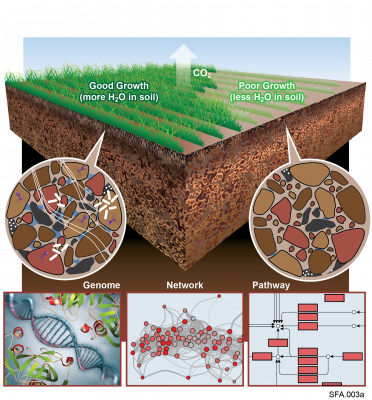Category
Description
Last updated on 2025-02-03T23:25:06+00:00 by LN Anderson
The Bruker Daltonics SolariX Magnetic Resonance Mass Spectrometry (MRMS) instruments are available for different magnetic field strengths of 7T, 12T and 15T. The SolariX XR and 2xR instruments use magnetron control technology and a newly developed, high sensitivity, low noise preamplifier to exploit harmonics detection schemes and thus increasing the experimental speed and instrument productivity. Compared to other FTMS techniques SolariX features a combination of latest MRMS, ParaCell XR, and Magnetron control technology. By incorporating the highest possible mass spec resolving power available, routine access to isotopic fine structure (IFS) information for a broad mass range delivers an additional dimension of information missing in data from other types of mass spectrometers.
The 15 Tesla SolariX™ FTMS ultra-high mass resolution system is uniquely capable of providing distinct molecular characterization of highly complex mixtures. SolariX series instruments allow for operation of a unique ESI/MALDI dual source can either run liquid samples introduced via the electrospray ionization (ESI) source or from MALDI samples, enabling MALDI imaging resolution in excess of 200.000 at 800 m/z and <0.6 ppm mass accuracy at 1Hz scan speed. This highly sensitive MALDI source uses Bruker’s SmartBeam-II™ laser technology (355 nm, 2 kHz; using 150 laser shots/pixel and 100-μm pitch between pixels) and provides several small focus diameters for various applications with different sample preparation techniques. Fast switchover between MALDI and ESI operation is controlled by a software pushbutton, so even simultaneous ESI/MALDI operation is possible.
Data Source Contributions
- LN Anderson, Data Curation
- CR Anderton, Resource Review
Instrument Data Source Profile
Instrument Name: 15T SolariX FTICR Mass Spectrometer
Model: Bruker Daltonic's solariX
Platform Design: Fourier Transform Ion Cyclotron Resonance Mass Spectrometer (FTICR-MS) with dual ESI/MALDI source
Data Types: C60-SIMS-HMS, HMS, HMS-HMSn, MALDI-HMS
Software: SCiLS Lab
Method Taxon: Ion Trap Mass Spectrometry, Imaging Mass Spectrometry
Topic Areas: Omics, Phenomics, Metabolomics, BioImaging
Explore this capability and more at the Environmental Molecular Sciences Laboratory (EMSL) Mass Spectrometry Imaging instrument resource page.
Federal Acknowledgements
This work was supported in part by the Earth and Biological Sciences Directorate (EBSD) at Pacific Northwest National Laboratory (PNNL), a multiprogram national laboratory managed by the Battelle Memorial Institute, operating under the U.S. Department of Energy (DOE) contract DE-AC05-76RL01830. User capabilities described here reflect collaborations with the Environmental Molecular Sciences Laboratory (EMSL), a DOE Office of Science (SC-3) user facility operating under the Contract No. DE-AC05-76RL01830.
Terms of Use
Recommendation guidelines provided by the DOE Office of Science can be accessed at the SC Funding Opportunities & Acknowledgements homepage. For additional information regarding user capability data release, visit the SC Digital Data Management Resources at User Facilities for more information.
EMSL Funding Acknowledgment
Scientists who publish results of research using EMSL resources, capabilities, and resulting data are required to include an acknowledgment of EMSL Policies in any publications. Learn more about user facility data management resources at the Office of Science Program page.
Projects (1)
The Phenotypic Response of the Soil Microbiome to Environmental Perturbations Project (Soil Microbiome SFA) at Pacific Northwest National Laboratory is a Genomic Sciences Program Science Focus Area (SFA) Project operating under the Environmental Microbiome Science Research Area. The Soil Microbiome...
Datasets
45



